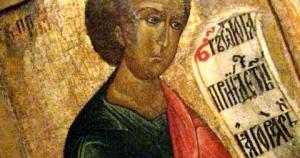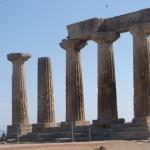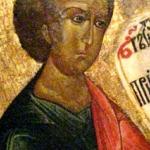LORD, I have heard the report of you, and your work, O LORD, do I fear. In the midst of the years revive it; in the midst of the years make it known; in wrath remember mercy.
 The prophet heard what the LORD was doing and was afraid. God was coming to Judah and God was mad.*
The prophet heard what the LORD was doing and was afraid. God was coming to Judah and God was mad.*
God is a just God and that should make any of us fearful. God is a merciful God and that gives hope.
Sometimes people blame Christianity for bad view of self and toxic, power-tripping forms of the Faith do exist.The central problem for our self-esteem and Christianity is not the result of misuse of the faith, nor is it even unique to Christianity, it is self-knowledge. Philosophy agrees: the unexamined life is not worth living.
Examining our life helps us see good in us, but also the not-so-good.
Socrates told us to live the examined life and if we examine ourselves, every human finds that his “is” is not what it “ought to be.” We fall short. This is a blow to self-esteem and so philosophy often has been attacked as making us unhappy. This led to the old question of whether it wasn’t, in the end, better to be a content pig than a discontented Socrates.
Whatever the good of the pig life, we do not have that option. We are human and so we must think and if we think, we should think truthfully, rigorously, about everything. That everything will include self, because self is the one topic we cannot (sadly!) escape.
Ever.
Thinking hard is hard on our pride. We think: “I am not so bad. I am no Stalin and certainly no Hitler.” This is not only true, but a very good thing indeed. Our good traits are also real: we are created in the very image of God. Nobody is so bad that there is nothing good to say of them, though in the case of Hitler and Stalin, nobody should try. We should know the good we have done and take good cheer from those deeds.
Yet the examined life refuses to stop at the surface. Socrates has insisted we know ourselves. If we look at the cosmos, we see the interconnections. If we look at the city, we see the relationships. The older we get the more we see how the one offhand, cruel comment could have stung for years and the bad deed could have bad consequences that go on having consequences. Nobody is righteous, no, not one.
This is the equality that comes with knowing self: we begin to know ourselves and the good is very good and must be acknowledged, but so is the harm done. There is a democracy of hope and despair when many of us realize that (at best) the small goods we have done may (we pray) outweigh the evils done. We are not Hitler, but we are also not William Wilberforce, giving his life to end slavery. If we were William Wilberforce, we would find that he knew that he was no William Wilberforce, if that means an uncomplicated hero.
Self-esteem tries being “realistic,” but this is not enough. Our little injustices are bad enough. God is perfectly just.* We could, perhaps, deny God exists or turn God into a jolly Santa who never takes on injustice, but that will not help us. Why? Justice is. We are not just. Against that iron and perfect standard there is no appeal. If there is no personal God, then perhaps justice is not coming, but justice still is.
The examined life teaches us our shortcomings from that perfect standard of justice. If God does exist and God does not wish perfect justice, then such a God is not worthy of a person’s worship. Justice must be maintained.
Yet we crave mercy. We need mercy. Mercy is what allows life in a broken world or even an unbroken world where “mistakes are made.”
Mercy.
Mercy acknowledges justice, but allows for life. Mercy grants a chance (where mercy can***) without ever minimizing pain. Habakkuk saw that the continuation of human life meant that God was both just and merciful. God’s perfection allowed us to grow, to repent, to return to Him.
No wonder the prophet had hope in unjust times for justice (yes!) and mercy.
————————————-
*We speak of God as having passions like our own, but just as God does not have a literal arm or eye (the “arm of the Lord” or the “eyes of the Lord” in Scripture), so God’s passions are our best images of what God is like.
**I am leaving aside some of us who have messed up badly and are in much need of mercy!
***This is not to say punishment is always bad. To cite an extreme example, we had to stop Hitler, even with a bullet. God, of course, knows perfectly who is really sorry and who is just looking to continue his grift.












